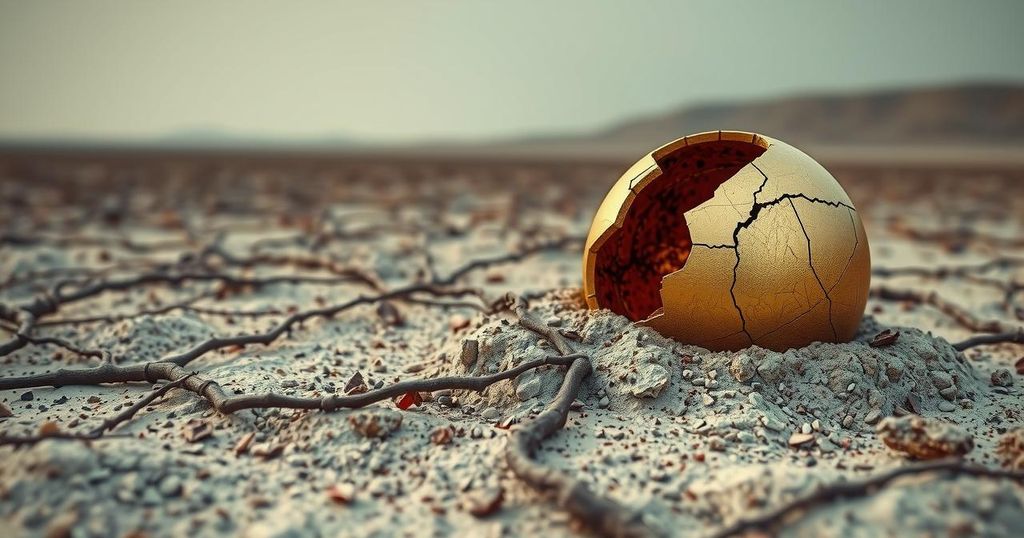Reports illustrate the extensive exploitation and wealth acquired by Maher Assad and the Fourth Division amidst Syria’s civil conflict. Despite ongoing poverty affecting much of the population, this elite military unit operated as a corrupt economic network, accumulating vast riches through illicit activities. As the regime appears to decline, the underlying issues of power and wealth distribution remain a pressing concern for Syria’s future.
In a chilling account of wealth and corruption, the Assad family’s military elite, particularly Maher Assad, exploited Syria amidst an ongoing civil war. Previously strongholds of the Fourth Division now lay abandoned, but documents unearthed reveal a vast network of plunder that enriched Maher Assad while many soldiers faced dire poverty. This elite group operated a corrupt economic empire, fueled by illegal activities and extortion across numerous sectors.
The Fourth Division engaged in a range of illicit or exploitative practices, including:
– Expropriating homes and farmland
– Selling seized goods such as food and electronics
– Looting metal from destroyed buildings
– Collecting fees at various checkpoints
– Running protection rackets for oil transportation
– Dominating the tobacco and metal industries.
At the core of this extensive corruption was Maher Assad’s underground office, accessed through a network of tunnels and guides. Guards provided tours of this complex, where vaults remained untouched by looters, at least initially. Documents detailed substantial cash reserves held by the Fourth Division, which underscored the vast wealth accumulated during the war despite widespread misery affecting the general populace.
Statements from experts, such as Kheder Khaddour, emphasized that the wealth generated from corrupt enterprises is likely hidden abroad. The Fourth Division operated almost as an autonomous operation within Syria, amassing enormous wealth while the UN reported that most citizens lived on less than $2 per day.
Maher and his associates reportedly developed a luxurious lifestyle, all while the general populace suffered. Reports indicated that Maher was often absent from public life even as his oppressive regime executed numerous violent acts against dissenters. His image, however, was omnipresent within military bases decorated with his portrait.
Despite facing sanctions, Maher’s influence prevailed, allowing his division to flourish. Reports detail various associates, rampant corruption, and illicit drug and arms trafficking, painting a portrait of enduring power despite the regime’s apparent downfall. Through personal accounts, it becomes clear that the Fourth Division had become synonymous with intimidation and greed, entrenching its power even amidst a distraught society.
The Fourth Division firmly monopolized the metals market, ensuring that no transactions occurred without their oversight. On the ground, testimonies revealed the extent of lost property and economic misery faced by displaced families. As the power structure of the Fourth Division dissipates, experts predict a potential resurgence of its network fueled by hidden resources and the unresolved grievances within marginalized communities.
As circumstances shift in Syria, the lasting consequences of the Fourth Division’s actions serve to remind observers of a deeply rooted institutional corruption that may persist in varying forms. While the leaders of this formative structure may have fled, the societal makeup suggests a possibility for future instability fueled by longstanding animosities and significant financial reserves.
The Assad regime’s inner circle, particularly through the Fourth Division, manipulated Syria’s economy for personal gain amid a humanitarian crisis. Accumulating immense wealth while the general populace suffered, their practices included extensive corruption, theft, and drug trafficking. As the Assad regime crumbles, the legacy of this unchecked power looms large, foreshadowing potential unrest in a nation rife with grievances and unaddressed societal divisions.
Original Source: www.arabnews.com




